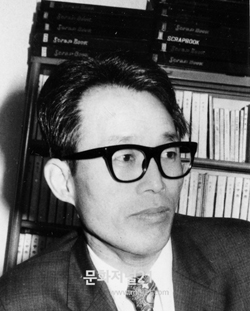내가 최근에 알게된《낙화》라는 감동적인 시를 한번 영어로 번역해보겠다. 우선 이 시를 소개한 사람한테 고맙다고 하고 싶다. 감사해요, M씨.
이 시를 쓴 시인의 이름은 이형기(李炯基)다. 진주에서 1933년에 태어났고 1956년에 동국대학교를 졸업하고 2005에 돌아가셨다. 검색해봤더니 낙화라는 시가 1963년에 출판한 것 같다. (그런데 출판년보다는 언제 처음 쓴 것을 알고 싶다…) 이 시의 내용을 이해하기가 좀 어렵긴 어려운데 사실 모국어로도 그런거죠. 당연, 보통 길 아니고 시 때문이죠. 나 같은 번역하려고 하는 사람이 꼼꼼하게 최선을 다할 수 있지만, 이중적 의미를 갖는 원래 나온 단어와 표현들이 같은 뉘앙스로 번역할 수 없는게 분명하다. 아무튼, 어찔 수 는 것이다. 내가 최선을 다했다. 내가 번역한 것을 읽으실 분께도 고마워요.
I am translating a poem by a Korean poet named Lee Hong-Ki (1933-2005). The poem’s name in Korean is “Nak-Hwa” (낙화, 落花, these characters meaning “fall” and “flower”). This is entirely my own translation with the help of various dictionaries.
|
낙화 / 이형기 시인
가야 할 때가 언제인가를 봄 한철 . 분분한 낙화…… 무성한 녹음과 그리고 나의 청춘은 꽃답게 죽는다. 나의 사랑, 나의 결별, |
Falling Flower Petals
By Lee Hyong-Ki [1963] To know, with certainty, Springtime. Oh, that sweet fragrance of falling petals…. Behold, greenery and lush shade, My youth, much like a flower, dies. My love, the parting of ways. |


감사합니다. 귀중한 번역시…. 애쓰셨어요..